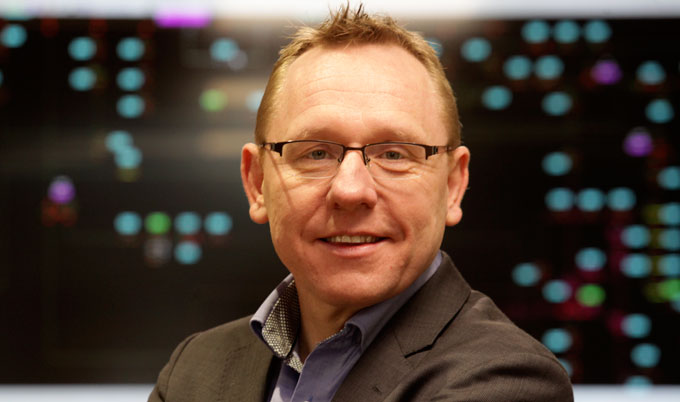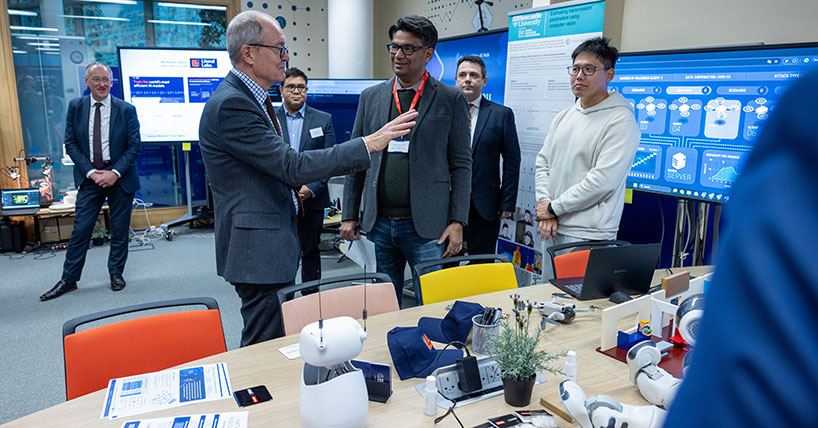Seeing the whole picture
Seeing the whole picture
Published on: 23 January 2017
An unique whole systems research, development and demonstration facility is set to become a cornerstone of energy innovation in the North East.
Integrating Gas Research Laboratory
The £30m InteGReL facility (Integrating Gas Research Laboratory), located in Gateshead, is a partnership between Northern Gas Networks (NGN) and the Newcastle University-led National Centre for Energy Systems Integration (CESI). It will allow energy researchers and industry to carry out grid scale trials and experiments of coupled gas, electricity and heat systems for the first time.
In response to the growing consensus that a 'whole systems approach' is necessary to transform the UK energy system and drive forward the government’s industrial strategy, NGN and CESI have launched a research, development and demonstration facility which reflects this need and is set to be at the forefront of energy innovation for years to come.
The announcement was made during the NGN launch of the Energising the North report produced by KPMG in London yesterday (23 January 2017), which described the strengths, challenges and opportunities for the North of England and UK energy systems.

The energy trilemma
Energy systems face many serious and sometimes conflicting challenges, often referred to as the energy trilemma: security, affordability and sustainability. Decarbonising these networks at reasonable cost - while maintaining security of supply - will have significant benefits both for industry and society. However, realising these potential benefits requires social, technical, commercial and regulatory innovation.
Professor Phil Taylor, head of the new National Centre for Energy Systems Integration at Newcastle University, explained: “The underpinning philosophy of InteGReL is that a 'whole systems approach' to energy is required to deliver what customers want. In order to do this we need to fully understand our complex energy system and the interdependencies between heating, cooling, transport, gas and electricity.
“Computer models can only take us so far in understanding energy systems and developing and evaluating new techniques and technologies, so there is a critical need for full-scale integrated energy system research and demonstration facilities where new ideas can be trialled and evaluated.
“These facilities are key in building confidence in new methods and technologies, in terms of both performance and safety, and this is what underpins our research at Newcastle University. Through integrating the learning from our smart grid laboratory, energy storage test bed on Science Central and now IntGReL, the aim is to test the whole energy system and really understand how we need to evolve and adapt to meet future supply and demand.”
Energising the North
In the Energising the North report, endorsed by the Minister for the Northern Powerhouse Andrew Percy MP, NGN calls upon the government to make low carbon energy a centrepiece of its industrial strategy for the North.
This includes a continued investment in the Northern energy economy, research and development and for the whole energy sector to work together and share innovations to achieve full decarbonisation by 2050.
The report also demonstrates how the Northern Energy Economy is leading the de-carbonisation agenda in the UK through pioneering projects such as the Northern Gas Networks H21 Leeds City Gate project; the Smart Grids Centre at Newcastle University; the Siemen’s wind turbine plant in Hull and the extensive electric car manufacturing by Nissan in Sunderland.
Industrial strategy
Speaking at the launch of the report, Mark Horsley, CEO of Northern Gas Networks, said: "We are experiencing a paradigm shift in the way energy is developed and delivered, and this report demonstrates how the North is leading the way for energy innovation across gas, electricity and transport.
"Initiatives such as our H21 Leeds City Gate project, which shows that conversion to a hydrogen gas network is achievable, demonstrate the way in which the North is leading the rest of the country in de-carbonisation technology.
"As the government announces its industrial strategy, we call on them to examine closely the findings of this report and to make low carbon energy investment a centre piece of its strategy for the North."
Potential for increased growth
Andrew Percy MP, Minister for the Northern Powerhouse, said: “The Northern energy sector is already contributing significantly to the UK economy: from 1997 to 2014 it accounted for around 23% of total UK economic value for the energy sector.
“Now today’s report finds that the energy sector has the potential to increase growth across the North by up to £2.3bn a year by 2050. This growth would be built upon existing capabilities and exploiting opportunities in smart power, decarbonised gas and transport. By making the most of these opportunities, the Northern energy sector can create an additional 20,000 jobs.
“The infrastructure is already in place and the Government is working across the region to invest in, support and develop the businesses required to super-charge the Northern Powerhouse.”
Robert Hull, Power and Utilities Director, KPMG, said: “There is already a strong energy sector in the North, but with the continued innovation in low carbon technology there is an opportunity to drive further economic growth across the region. To deliver this there needs to be a step-change in the approach to energy provision, with increased emphasis on exploiting innovation and gaining efficiencies across power, heat and transport.
“This is why transforming the region’s energy sector should be at the heart of both the government’s industrial strategy, and its Northern Powerhouse agenda. It will be important not to miss this opportunity to realise secure, clean and lowest cost energy while also delivering economic growth.”



